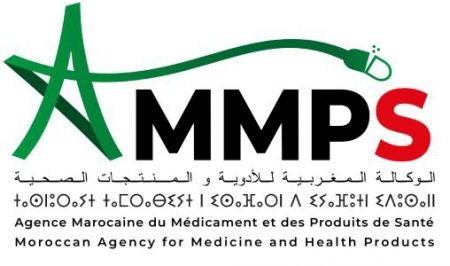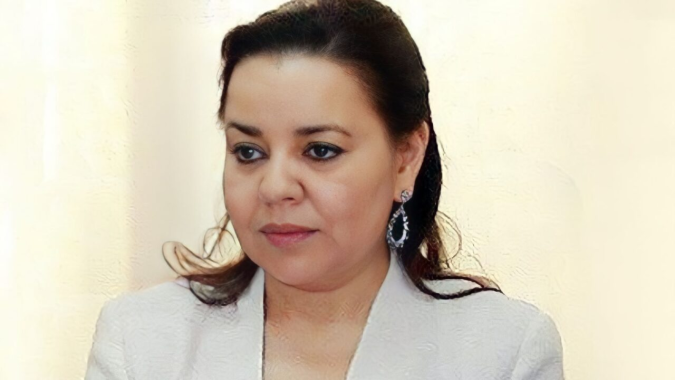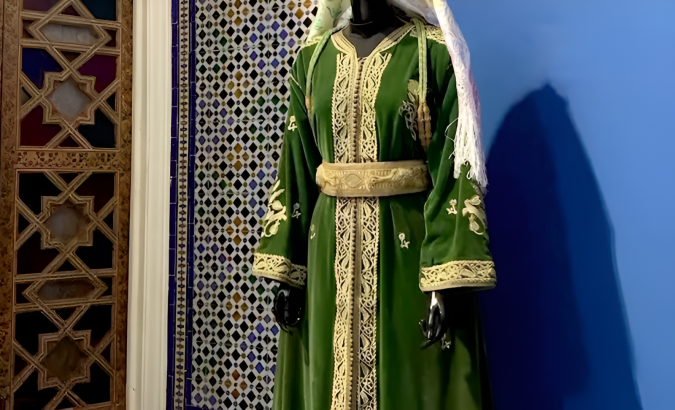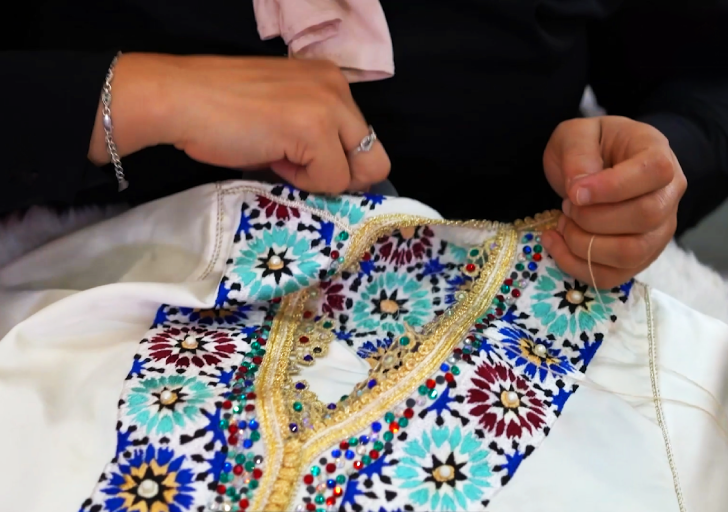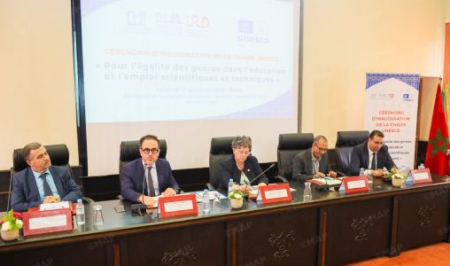
Mohammed V University (UM5) in Rabat hosted the inauguration ceremony for the UNESCO Chair for Gender Equality in Science and Technology Education and Employment on Friday, attended by academics, researchers, and representatives of non-governmental organizations.
The result of a partnership between the Faculty of Education Sciences (FSE) at UM5 in Rabat and the French National Research Institute for Sustainable Development (IRD), this initiative aims to strengthen research and training in science and technology education and employment and to provide public policymakers with the specific data needed to take action to attain effective gender equality in these fields.
On this occasion, UM5 President Mohamed Rhachi emphasized that “this Chair will be dedicated to developing in-depth scientific reflection on various forms of discrimination faced by women during their academic and professional careers, as well as when entering the labor market.”
The Chair also seeks to produce knowledge and strategic recommendations, while supporting and guiding public policies in favor of gender equality in the fields of education and employment, particularly in scientific and technical fields, Rhachi said in a speech read on his behalf by UM5 Vice President in charge of research, innovation, and partnership Ismaïl Kassou.
For her part, IRD CEO Valérie Verdier said that “the launch of this Chair marks a major step forward in our shared commitment to gender equality in science and technology, fields that are still too often marked by persistent inequalities.”
The creation of this Chair is a strong reflection of the common willingness to advance research, training and public policies in favor of women in science and technology education and employment in Morocco, Africa and beyond, she said.
For her part, Fatima Ouahmi, head of the UNESCO Chair for Gender Equality in Science and Technology Education and Employment, stated that this initiative is the result of a visionary partnership between UM5 in Rabat and IRD, adding that its inauguration crowns two years of “effort, perseverance, and conviction.”
Director of UNESCO's Regional Office for the Maghreb Charaf Ahmimed said that the inauguration of this Chair symbolizes both the strength of institutional commitment and the hope for a future in which women in the Maghreb, and around the world, can contribute fully to science and technology.
He noted that girls' access to primary, secondary, and university education in the Maghreb region has made considerable progress, pointing out that in Morocco, women now represent 53.6% of the student body in public universities.
Morocco's Minister of Solidarity, Social Inclusion and Family Naima Benyahia said that through this chair, UNESCO is reaffirming the central role of gender equality in building knowledge societies. “A strategic choice was made in establishing this chair, which symbolizes the meeting of knowledge and universal values,” she noted in a speech read on her behalf.
UNESCO has already established several Chairs in Moroccan universities, including “Women and Their Rights” at Ibn Tofail University in Kenitra, “Water, Women and Decision-Making Power” at Al Akhawayn University in Ifrane, and “Lifelong Learning” at Sidi Mohamed Ben Abdellah University in Fez.
MAP: 20 September 2025
